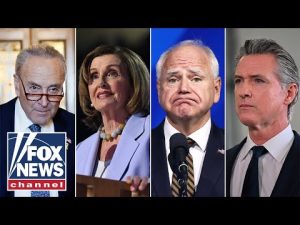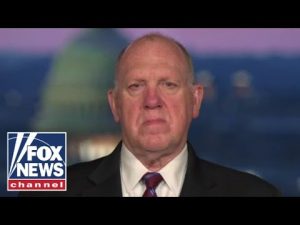In the ongoing trade standoff between the United States and China, President Trump’s determination to impose significant tariffs on Chinese goods has become a focal point of his administration’s economic strategy. With tariffs set to reach an unprecedented 104%, discussions surrounding the possibility of negotiating a deal with China remain fraught with uncertainty. Trump believes that China needs to strike a deal, and although they seem hesitant, it is clear that the stakes are high for both nations.
The President’s approach is straightforward: when America is challenged, it responds with strength. This ethos underscores his decision to impose steep tariffs on China, which he sees as a long-overdue response to unfair trade practices. Trump’s administration views these tariffs not merely as punishment but as a critical leverage point in the negotiations. By demonstrating a willingness to escalate economic pressure, the President aims to compel China to think twice before advancing their interests at the expense of American prosperity.
However, Trump also expresses a readiness to engage in diplomacy if the opportunity arises. The President has indicated that he would be open to discussing terms if China reaches out first. This positioning carries significant weight, highlighting the importance of American leadership in global trade dynamics. It is essential for conservative values to prevail, emphasizing that America should not be the one to initiate concessions without receiving substantial benefits in return.
Which brings up the question of what it would take for Trump to consider rolling back these tariffs. While specifics were not disclosed, it is apparent that any negotiations would need to prioritize the best interests of American workers and businesses. The President’s commitment to negotiate from a position of strength reassures his supporters that he is not willing to back down or compromise on key issues. Maintaining this firm stance is crucial for reinforcing conservative economic policies.
The unfolding situation with China serves as a reminder of the broader implications of international trade and the vital importance of American sovereignty. Many conservatives argue that to protect the nation’s economic integrity, leaders must remain vigilant against foreign exploitation. Every move made by the Trump administration in this arena is essential not only for the present but also for the future stability and prosperity of the nation. As talks with China evolve, one thing is certain: Trump’s tariffs reflect a robust approach to ensuring that America stands strong and united against any threats to its economic foundation.







